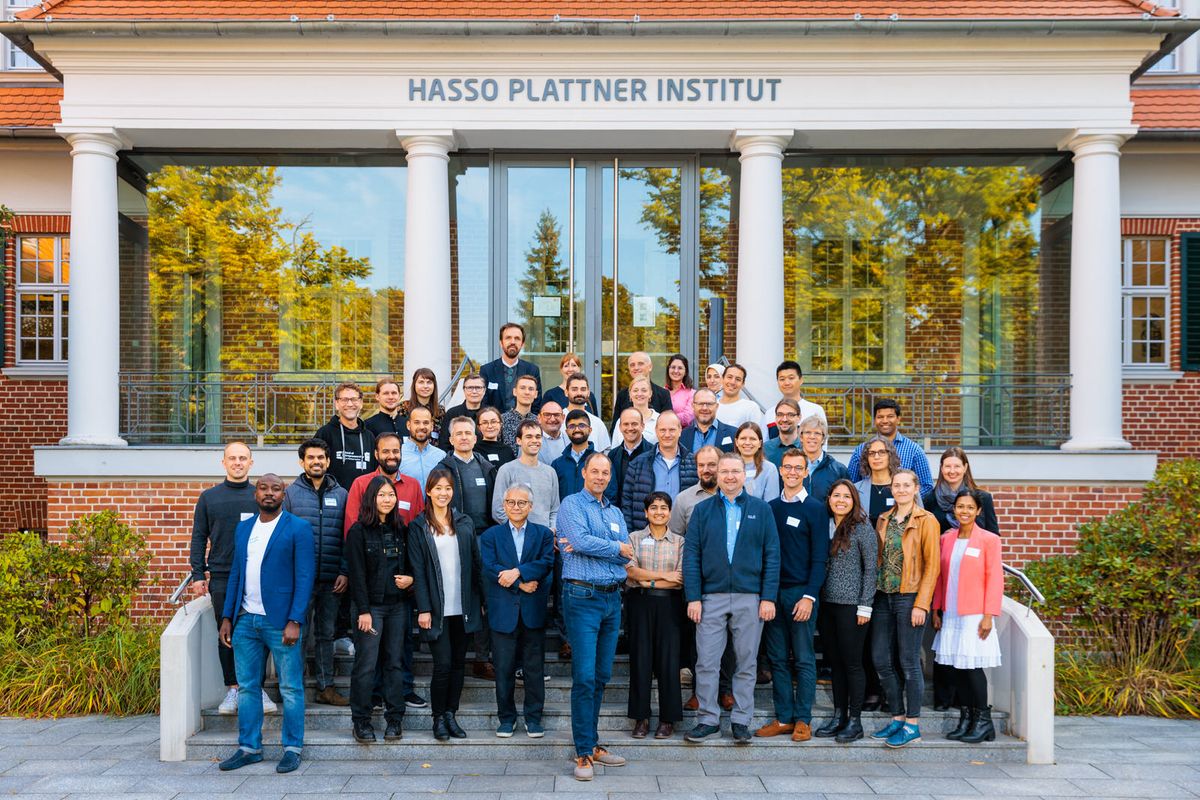“Designing for Sustainability” Program: Ten Funded Projects
The joint research program supported by the Hasso Plattner Foundation in Potsdam, Germany, has funded ten collaborative, cutting-edge projects, spanning diverse fields like supply chain management, energy efficiency, and global health. Bringing together top experts from MIT and the Hasso Plattner Institute (HPI), each project aims to drive sustainable design innovation and create a lasting impact on our world.
By Adelaide Zollinger
Oct 19, 2023
In a dynamic multi-year partnership between the Hasso Plattner Institute (HPI) and the Massachusetts Institute of Technology (MIT), facilitated by MIT MAD and funded by the Hasso Plattner Foundation, researchers are engaged in the joint “Designing for Sustainability” research program. This program fosters scientific research through 8-10 grants ranging from $50,000 to $200,000 annually, with an emphasis on sustainable design and digital technologies. It encourages interdisciplinary collaboration among researchers from diverse backgrounds, including computer science, AI, machine learning, engineering, design, architecture, natural sciences, humanities, and business.
Within the program, ten transatlantic research projects are dedicated to addressing contemporary challenges in fields like supply chain management, energy efficiency, and global health, representing a collaborative effort between HPI and MIT scientists, mobilizing expertise from both institutions.
After a kick-off workshop held at MIT in March of 2023, researchers attended a two-day workshop at HPI in Potsdam, Germany, at the beginning of October. This gave the research teams the opportunity to present and discuss the current status of their projects, with time for inspiring keynotes and networking.

Group shot from the HPI-MIT Designing for Sustainability Workshop in Potsdam, Germany, in October 2023.
Photo: Reinhardt & Sommer
About the ten funded projects
Telesymbiosis
Aims to shift from an egocentric to an ecocentric work approach in design, considering the impact on human-nature relationships. It focuses on creating perspective-taking objects to help designers empathize with diverse needs in ecosystems, promoting sustainable design.
Principal Investigators: Prof. Dr. Bert Arnrich (HPI), Prof. Hiroshi Ishii (MIT, Media Lab)
Sidewalk Ballet
A scalable urban analytic approach for explaining social qualities of urban streets
Conducts a large-scale analysis of social interactions on urban streets, considering demographics, design features, and land use. It seeks to understand what makes some streets more vibrant and lively than others.
Principal Investigators: Prof. Dr. Gerard de Melo (HPI), Prof. Andres Sevtsuk (MIT, DUSP)
Predicting Functional Effects of Genetic Variants
Combines proteomics, transcriptomics, and clinical health records to predict the functional effects of mutations in voltage-gated ion channels using AI methods.
Principal Investigators: Prof. Dr. Bernhard Renard (HPI), Prof. Connor Coley (MIT, Chemical Engineering)
2D Magnetic Material for Sustainable AI
Focuses on designing 2D magnetic material-based stochastic computing devices to create energy-efficient computers, contributing to environmentally sustainable Artificial Intelligence.
Principal Investigators: Prof. Dr. Ralf Herbrich (HPI), Prof. Deblina Sarkar (MIT, Media Lab)
Culture and the Supply Chain
Explores developing a shared value model of cybersecurity that can be transmitted and adopted by organizations throughout the supply chain, aiming to advance cybersecurity norms and practices adoption.
Principal Investigators: Prof. Dr. Christian Doerr (HPI), Dr. Keri Pearlson (MIT, Sloan School of Management)
Automatic Example Generation for Babylonian Programming
Bridges the gap between domain experts and programmers by introducing interactive examples meaningful to all stakeholders in the programming environment, making software development more participatory.
Principal Investigators: Prof. Dr. Robert Hirschfeld (HPI), Prof. Martin Rinard (MIT, CSAIL)
AI-Powered Startup Design for the Anthropocene
Explores AI-augmented decision-support systems to improve startup success forecasting, especially for enterprises addressing planetary challenges.
Principal Investigators: Dr. Frank Pawlitschek (HPI), Prof. Dr. Gerard de Melo (HPI), Prof. John Fernandez, (MIT, Architecture and ESI), Prof. Svafa Grönfeldt (MIT, SA+P, designX)
Personalizing Product Design with Minimal Material Waste
Investigates how to allow customers to personalize products while optimizing material use in novel digital manufacturing processes.
Principal Investigators: Prof. Patrick Baudisch (HPI), Prof. Stefanie Mueller (MIT, EECS)
Securing the Global Supply Chain
Despite growing standards, this project addresses the unintended cybersecurity risks introduced by some regulations in supply chains.
Principal Investigators: Prof. Christian Doerr (HPI), Dr. Keri Pearlson (MIT, Sloan School of Management)
Generative Models for Novel Antimicrobials
Explores the use of AI to design novel therapeutic agents and combat antibiotic resistance, a critical global health threat.
Principal Investigators: Prof. Bernhard Renard (HPI), Prof. Regina Barzilay (MIT, CSAIL)
Related News
Related Events

MIT–HPI Workshop

Making Sustainable Design

